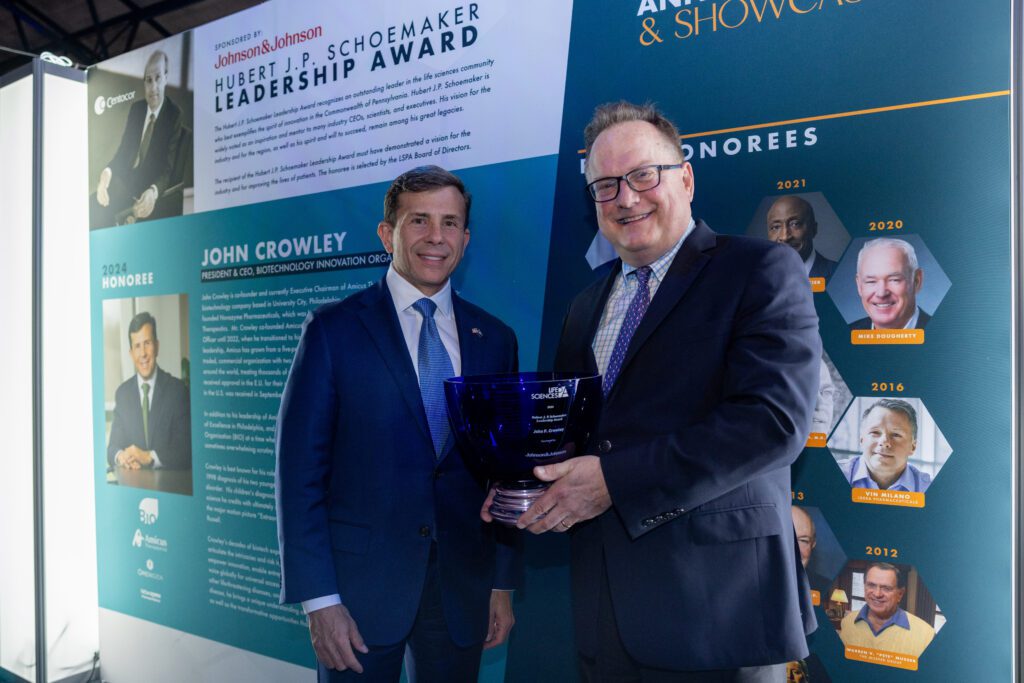On April 10, Life Sciences PA awarded Biotechnology Innovation Organization (BIO) President & CEO John F. Crowley the Hubert J.P. Schoemaker Leadership Award. The award is given annually to a Pennsylvania “leader in the life sciences community who best exemplifies the spirit of innovation,” said Christopher Molineaux, President & CEO at Life Sciences PA, in a podcast conversation with Crowley timed with the award.
Life Sciences PA represents Pennsylvania’s biotech sector and is a member of the Council of State Bioscience Associations (CSBA). The award’s namesake, Schoemaker, helped start Centocor, “which is best known for developing Remicade, a drug for rheumatoid arthritis and Crohn’s disease. He also mentored other biotechnology entrepreneurs in the Philadelphia area,” explained the New York Times’ 2006 obituary. Johnson & Johnson later acquired Centocor, which built the foundation of Johnson & Johnson’s immunology business.
Speaking on Life Sciences PA’s Being a Life Sciences Leader Podcast, Crowley explained his journey into biotech after his two children were diagnosed with Pompe disease, a rare form of muscular dystrophy.
“I realized the extent of the unmet need and, candidly, the extend of the suffering for people living with rare diseases and their caregivers and their families,” he explained. This would drive him to found Amicus Therapeutics. The Philadelphia-based biopharma developed an FDA-approved therapy for Pompe that ultimately saved his children’s lives.
What makes a disease ‘rare’?
Rare diseases include about 10,000 unique diseases that, together, affected nearly half a billion people, said Crowley. They include well-known diseases like muscular dystrophy and cystic fibrosis, as well as “thousands and thousands more that I’ve never heard of in working more than almost 25 years in the field,” explained Crowley. And the majority affect children.
“In every case, these rare diseases present with unmet needs,” he continued. More than 90% of these diseases have no treatment options, and very few have cures.
But there is better news. “We really, truly are on the cusp of this golden age in genetic medicine,” for diseases rare and otherwise, he said.
A founder’s journey
“For me, coming into the life sciences was really the day our kids were diagnosed,” he continued. “I knew nothing about rare diseases. I had zero idea of what it took to make a medicine.
He recalls a plaque at Bristol Myers Squibb, where he began working about a year after his children were diagnosed. The plaque said: Our mission is to extend and enhance human life.
Coming from law, business, and consulting, “that was something different, and it really struck me,” he said. And that mission has stuck with him, at Amicus and BIO and everything in between.
“Everything we do at BIO, and everything we do throughout the industry, is done with an extraordinary focus on patients, families, and caregivers. It has to be the core of everything we do,” he said. “Great innovation is necessary, but not sufficient. We need innovation and universal access to our medicines. So, let’s work together and start identifying what are all the barriers to breaking down that access so that no person ever has to go one day without their medicines.”




